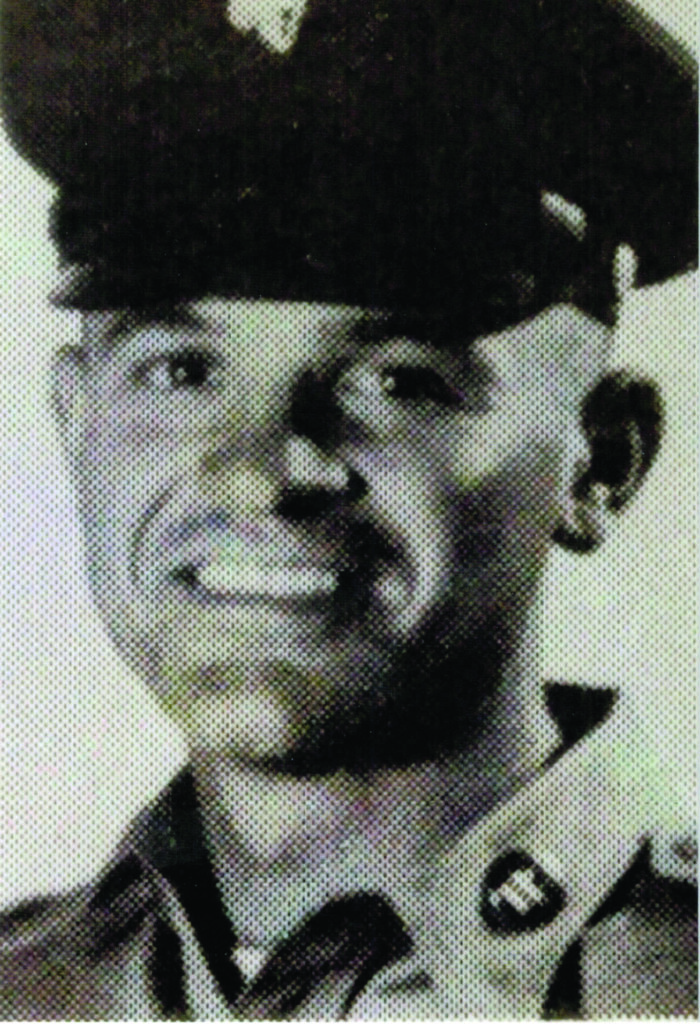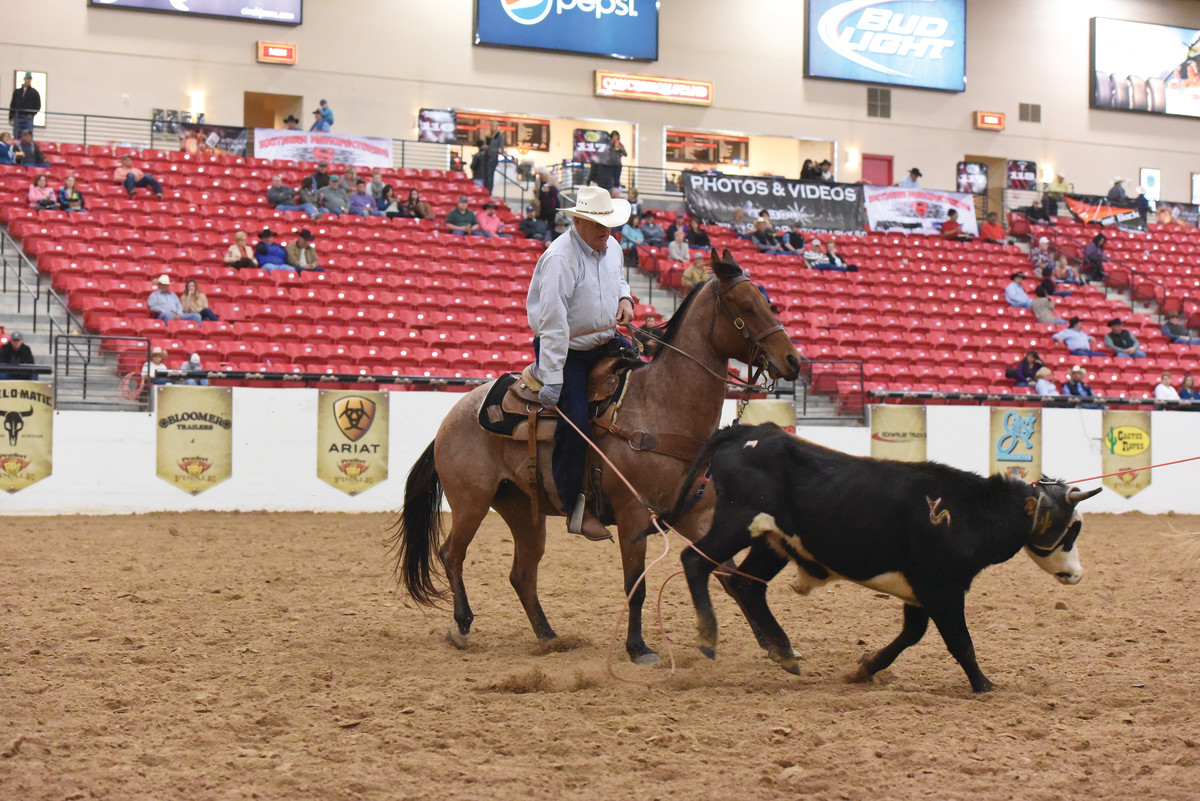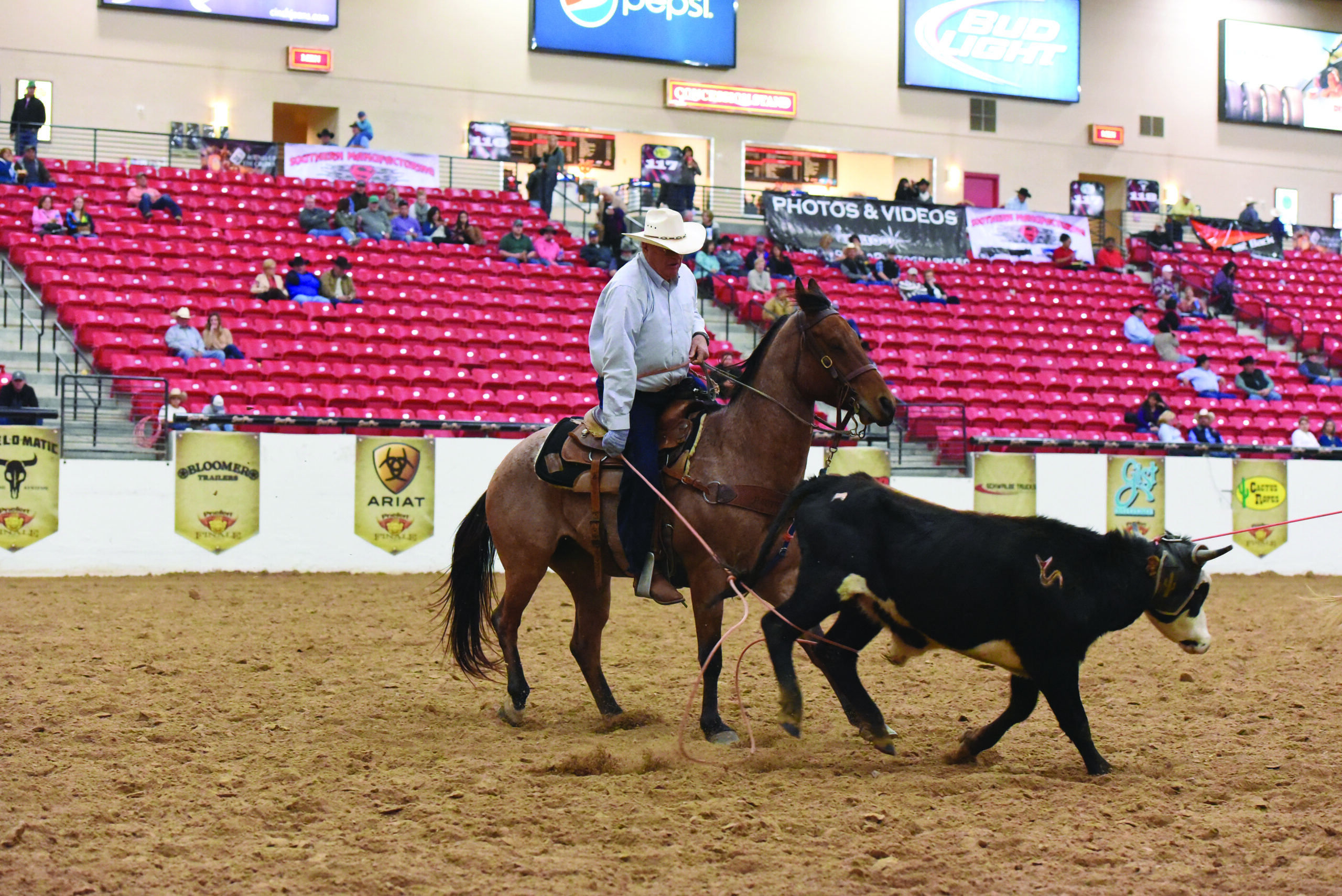W.T. Ridings was going to school at Oklahoma State University in Stillwater when he got a letter May 20, 1958, from then-President Dwight D. Eisenhower, telling him his service was needed in a conflict on the Korean Peninsula, some 6,614 miles away.

“I had never even thought about the war at the time,” Ridings, now 81 and the grandfather of five and great-grandfather of five more, said. “I didn’t even know I was registered on the draft board. I had a 1.9 grade-point average, and if I’d have had a 2.0 they wouldn’t have drafted me. I had two classes that were killing me. One was chemistry—I had no background in it. I should have gotten out of the class and taken something else.”
Ridings might have been blindsided by the draft, but the ROTC trainee was prepared when he showed up for basic training. He knew the commands, and he’d grown up riding Zantanon Jr colts raised on his family’s ranch in Fort Supply, Okla., so he was ready for the hard work that started at 6 a.m. and didn’t end until 10 p.m. Some 625 Oklahomans died during the Korean War, but Ridings’ education helped insure his safety.
“When I got to Korea, we got off the ship by climbing down ropes onto LSDs (dock landing ships, or small boats that sailors take from the larger ships to the land),” retired Spc. Fourth Class Ridings remembered. “We landed on the Korean beach just like we were invading the country. First thing they did was process us to see what kind of education we had. I had enough at that time, the one thing that saved me is that I learned how to type really well. They put me in the finance office on a 1,500-man payroll. I was in the Headquarters Detachment of the 83rd Ordnance Battalion for the U.S. Army in Anyang Ne, Korea. I was on my way to the DMZ (the Demilitarized Zone, or the border between what’s now North and South Korea) when my education saved me.”
Ridings made it back to Oklahoma in the spring of 1961 and got a rope back in his hand as fast as he could. He quickly went to work starting colts on a ranch north of Woodward making $75 a week.
“I didn’t have money to compete because I was working to get an education and have a family. That’s where I was at until I got crippled in 1966 and had to have my back operated on. In 1967 I was at my mother’s place and in the fall of 1968, I enrolled at Northwestern Oklahoma State and finished my degree in business education with a minor in physical education,” Ridings said.
He spent the next few decades raising his two daughters, Kellie and Shelly, and teaching business and physical education in Alva and Washington, Okla., as well as coaching track and basketball. He took a teaching break in 1984 to move to Gruver, Texas, to train race horses, but when the stable he worked for went broke, he went back to teaching for four more years before retiring. But in 2004, Ridings decided he was ready to rejoin the workforce and got a job with the Department of Corrections in Fort Supply, Okla., teaching GED courses.
“It’s the best teaching job I ever had,” Ridings said. “No problems with parents, no problems with students. It was 12 months a year. It was a good job with not near as much pressure as in the public schools.”
Now retired, Ridings spends as much time as he can with his first love—team roping—and still rides horses who go back to those original colts in the 1940s.
“My family’s horse business goes back all the way to 1942 when we got our first three filly colts given to us boys when we were little guys. They were all three out of Zantanon Jr—a half-brother to King P 234. We kept all those good mares. That’s where all those horses come from. I get tickled when I hear of guys breeding horses for 15 or 20 years. I’ve been at it ever since I started riding when I was 5 years old. The most pleasure I’ve ever got out of anything is raising my own horses and training them and team roping. It’s one of the great pleasures I’ve ever had. I appreciate what the Western style of life has done for me in the part that I’ve participated in. It’s been a pretty interesting life.”

Red—Ridings’ 9-year-old roan gelding registered as Jines Cat that he raised and trained—has helped Ridings become a steady contender across America’s Heartland.
In May 2016, Ridings paired up for the first time with retired Marine Shawn Day to win the #8 Pick/Draw at the Kansas Championships for a cool $2,525 and a brand-new saddle. But just a few days later, Ridings was on a plane to Oklahoma City fighting for his life.
“He had kidney cancer and two heart attacks,” Ridings’ daughter Shelly explained. “He had to be off his blood thinners, and he was in the hospital for over a month in Oklahoma City. He needed his gallbladder out—it was really infected. They did an ultrasound on his gallbladder and found this tumor on his kidney. They wouldn’t have found it if he didn’t need his gallbladder out. You usually don’t know you have it until it’s too late.”
Ridings was supposed to be doing in-patient therapy to help him recover, but that life wasn’t quite for him. He bought a stair-stepper to build up the strength in his legs and thighs, Shelly said, and he was back to roping before the year was up.
“I’ve kind of rehabilitated myself to rope again,” Ridings laughed. “I’m damn lucky to be alive, let alone to be able to rope.”
Just this August, Ridings heeled three steers in 27.74 seconds for Cale Ellis to win the #8 Pick/Draw at the Chisholm Trail Classic in Enid, Okla.
“He’s probably going to die with a rope in his hand,” Bob Battisti, Ridings’ son-in-law, said. “People his age, they didn’t grow up with remote controls or microwaves. They grew up with basically nothing. He grew up tough. If I could think of one way to describe him, it’s old school.”
“My dad grew up in that era of hard work,” Kellie Thiesing, Ridings’ daughter, added. “He’s a very motivated, driven, hard-working person. He thinks if you quit you die. He says, ‘You know what they say happens when you quit.’”









